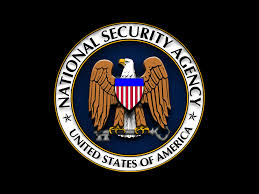I don’t think the National Security Administration’s spy program is the U.S. government’s worst abuse of power.
Death warrants based on the President’s sole judgment, signature strike killings based on patterns of behavior, imprisonment of people at Guantanamo Bay who are not accused of any crime, acts of war based on the President’s sole judgment, prosecution of whistle-blowers for exposing wrongdoing—all these are far worse abuses, although of course made easier by all-pervading government secrecy.
 It is a fact that we, the people, do not know the whole story about the NSA. Maybe if we knew the whole story we would think differently, but I doubt it. To think that people can be trusted to exercise power in secret and without accountability goes against both human nature and the historical record.
It is a fact that we, the people, do not know the whole story about the NSA. Maybe if we knew the whole story we would think differently, but I doubt it. To think that people can be trusted to exercise power in secret and without accountability goes against both human nature and the historical record.
The NSA is part of an international intelligence-gathering system, set up in 1947, which continues British-American wartime intelligence cooperation, and links the NSA predecessor organization (the NSA was officially created in 1952) with Britain’s Government Communications Headquarters (GCHQ), Australia’s Defense Signals Directorate (DSD), Canada’s Communications Security Establishment (CES) and New Zealand’s Government Communications Security Bureau (GCSB).
This makes laws against spying on American citizens essentially meaningless. There is no law against the GCHQ spying on American citizens, nor against sharing the information with the U.S. government. During the 1980s, Margaret Thatcher reportedly wanted to tap the conversations of cabinet ministers she suspected of being disloyal. Canada’s CES did the job for her.
Click on ECHELON: America’s Secret Global Surveillance Network for a 1998 article by Patrick S. Poole giving the historical background, including the Thatcher anecdote.
Click on The Brits Are Spying On Us — They’ve Got ‘More Access’ Than the NSA for a current report by John Reed for Foreign Policy magazine.
Click on GCHQ taps fibre-optic cables for access to the world’s communications for a current report by The Guardian. [Added 6/22/13]
Click on What do we know about Canada’s eavesdropping policy? for a current report by CBC News.
A congressman told CNET last week that he was told by the NSA that it in fact does have the power to listen to individual phone calls.
The National Security Agency has acknowledged in a new classified briefing that it does not need court authorization to listen to domestic phone calls, a participant in the briefing said.
Rep. Jerrold Nadler, a New York Democrat, disclosed on Thursday [June 13] that during a secret briefing to members of Congress, he was told that the contents of a phone call could be accessed “simply based on an analyst deciding that.”
If the NSA wants “to listen to the phone,” an analyst’s decision is sufficient, without any other legal authorization required, Nadler said he learned. “I was rather startled,” said Nadler, an attorney and congressman who serves on the House Judiciary committee.
A Nadler spokesman later said that Nadler accepts NSA’s assurance that it doesn’t eavesdrop on individual phone calls. My guess is that the NSA technology simply sweeps up everything that is electronically available and stores it, but only looks at individual messages when somebody in the NSA decides there is some reason to do so.
Click on NSA spying flap extends to contents of U.S. phone calls for the full report from Declan McCullagh of CNET.
The Washington Post reported that the NSA has four surveillance programs—MAINWAY and MARINA, for collecting “metadata” on who calls whom, when and where; PRISM for Internet communications; and NUCLEON, which collects intercepted telephone calls.
Click on U.S. surveillance data includes collection of revealing Internet, phone metadata for the Washington Post report by Barton Gellman.
The Obama administration says that NSA spying is legal and transparent because it is under the supervision of the secret Foreign Intelligence Surveillance (FISA) Court and because it gives limited information to certain Senators and Representatives who are not allowed to tell what they know.
Click on Fisa court oversight: a look inside a secret and empty process and The top secret rules that allow NSA to use US data without a warrant for Glenn Greenwald’s reports to The Guardian on why these assurances mean little or nothing.
In terrorist attacks ranging from the 9/11 attacks to the Boston marathon bombings, enough information was available to the authorities to stop the attacks. The problem was noticing the vital information hidden among all the meaningless information. If your problem is finding needles in haystacks, it doesn’t help to pile up ever-bigger haystacks.
Click on The Dirty Little Secret About Mass Surveillance: It Doesn’t Keep Us Safe for more about this on Washington’s Blog, which, by the way, has excellent continuing coverage and links on the whole NSA scandal.
Another problem is that the more data is piled up, the more frequently mistakes will be made. Everybody who has suffered from an error on their credit record knows how hard it is to correct that record. Imagine how much worse it would be for an agency that operates in secret and that does not admit mistakes.
Click on Why Should We Even Care If the Government Is Collecting Our Data? for more about this by Rebecca J. Rosen of The Atlantic Monthly.
Click on NSA Scandal: What It Would Take to Stop the Spying for final thoughts by Jesse Walker in Reason magazine.













